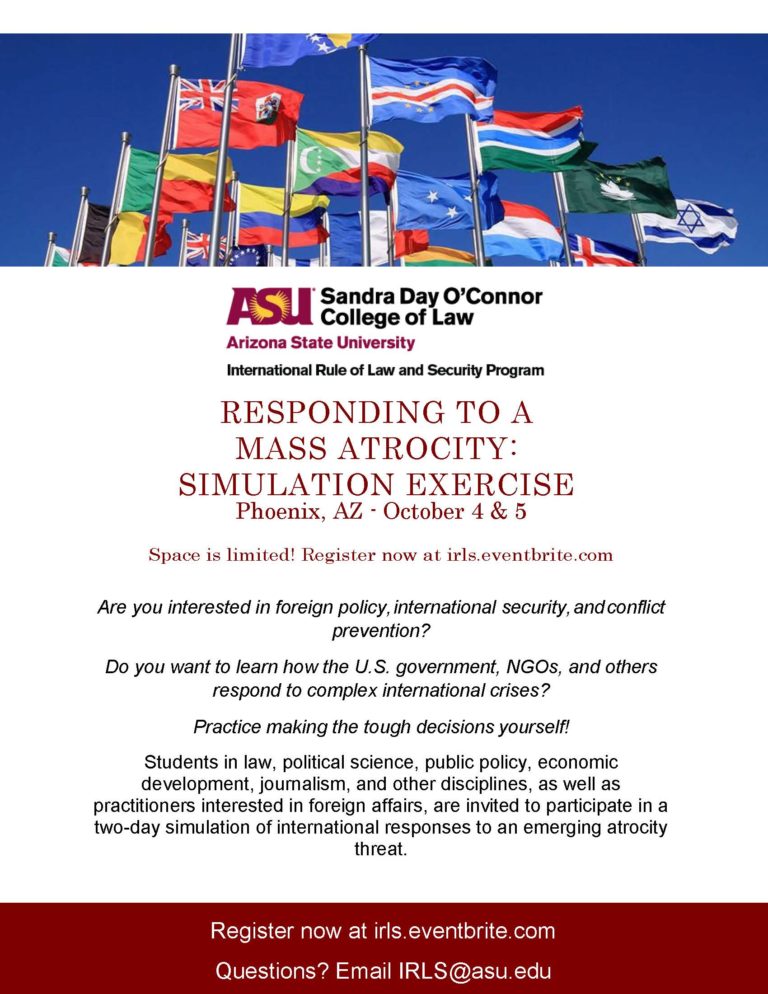Julia Fromholz. Julia is the Director of the International Rule of Law and Security Program and a Professor of Practice, teaching International Human Rights Law.
The President’s aides wrestle with members of Congress over policy promises. Presidential candidates promise policy changes. Media commentators dissect every angle of new policies. But how does the U.S. government develop and test the policies it implements, especially when a crisis does not allow time for trial and error?
The International Rule of Law and Security program is bringing to ASU Law one method U.S. government officials use: a simulation exercise, in which teams of participants take on the roles of governments and the UN, each with its own interests to pursue and its own sources of information. On October 4 and 5, 2019, six former U.S. government officials will each lead a team to analyze—and try to prevent—a looming mass atrocity in South Asia.
Officials across the U.S. government participate in simulation exercises such as these—sometimes called table-top exercises—to test possible responses to crises. These exercises allow officials to identify weaknesses in their response plans, gaps in their knowledge, and competing interests among agencies and allies. Starting about a decade ago, the Foreign Service Institute—the training ground for diplomats and other government officials who work on foreign policy—has used a mass atrocity simulation exercise to teach officials to identify potential warning signs of imminent such crises, use a variety of diplomatic, development, and other tools to try to de-escalate tensions, and understand the challenges, both domestic and international, to responding effectively.
The precise circumstances underlying the potential mass atrocity are fictitious, but they are based on real life. Jim Finkel, the former senior government official who wrote and will oversee the exercise, spent his career analyzing conflicts, war crimes, crimes against humanity, and genocides. He has studied the root causes of mass atrocities and the political, economic, cultural, and religious environments in which they have occurred. Along with Mr. Finkel, team leaders will guide participants representing the U.S., the United Kingdom, China, India, and France and the European Union, as well as the United Nations and non-governmental organizations, in practicing conflict analysis, policy assessment, and international cooperation (or lack thereof) over the course of six stages of a complex crisis. The team leaders come to the exercise with decades of experience in the U.S. military (Army and Navy); U.S. Departments of Homeland Affairs, Justice, and State; the European Union; the United Nations; and foreign non-governmental organizations.
The IRLS team invites all interested students and practitioners to participate in this exercise. Please contact IRLS@asu.edu for more information or to register.
